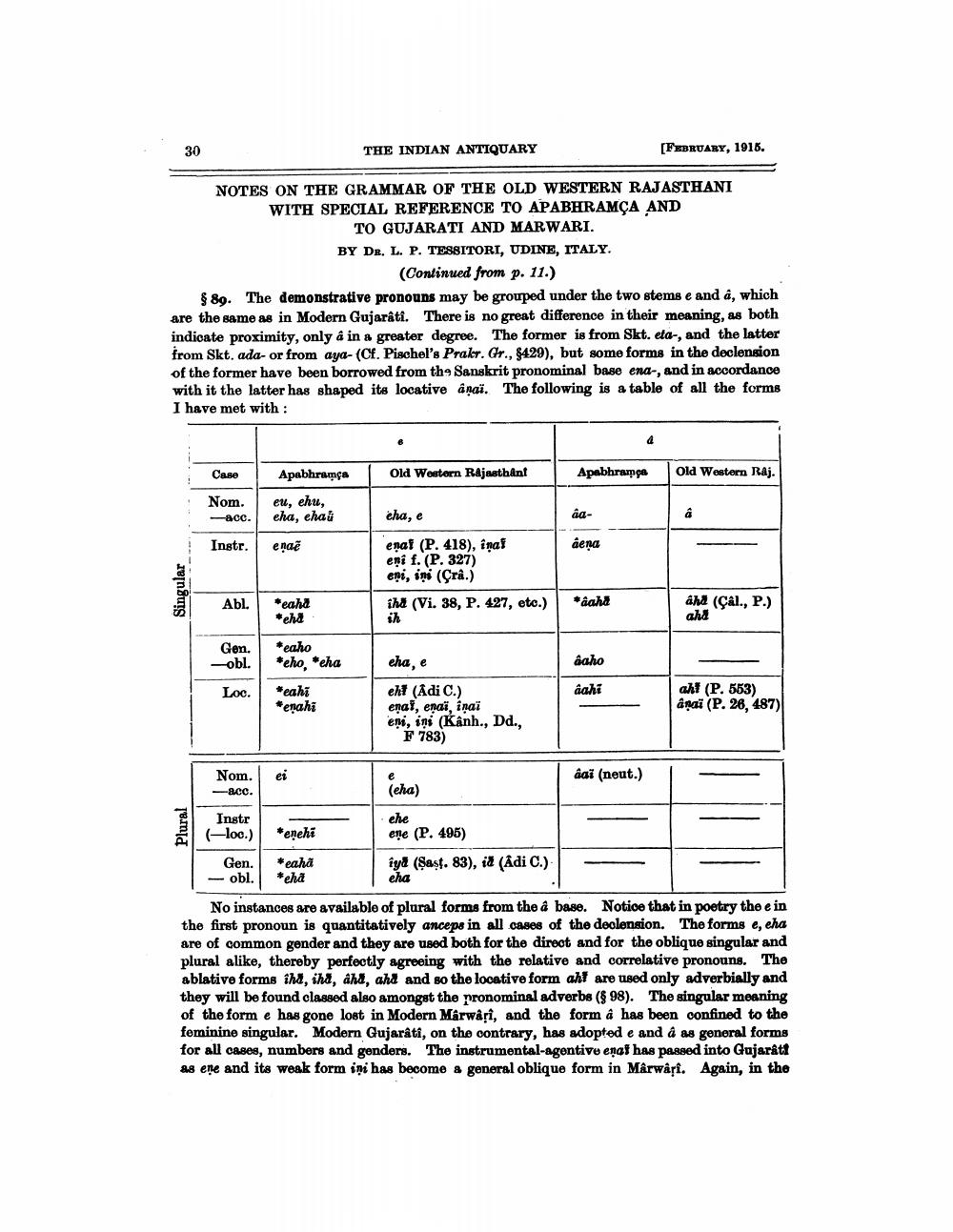________________
30
THE INDIAN ANTIQUARY
[FEBRUARY, 1918.
NOTES ON THE GRAMMAR OF THE OLD WESTERN RAJASTHANI WITH SPECIAL REFERENCE TO APABHRAMCA AND
TO GUJARATI AND MARWARI. BY DR. L. P. TESBITORI, UDINE, ITALY.
(Continued from p. 11.) $89. The demonstrative pronouns may be grouped under the two stems e and â, which are the same as in Modern Gujarati. There is no great difference in their meaning, as both indicate proximity, only a in a greater degree. The former is from Skt. eta-, and the latter from Skt, ada- or from aya-(Cf. Pischel's Prakt. Gr., $429), but some forms in the declension of the former have been borrowed from the Sanskrit pronominal base ena-, and in accordance with it the latter has shaped its locative anai. The following is a table of all the forms I have met with :
Case
Apabhramça
Old Western Rajasthan
Apabhramga
Old Western Raj.
Nom. -acc.
eu, ehu, eha, ehau
aa
Instr.
enaz
aena
cha, e enaf (P. 418), inaf eni f. (P. 327) eni, ini (Çra.) iht (Vi. 38, P. 427, etc.)
Singular
*eaha ehd
and (Çal., P.) ahd
Gen.
eaho *eho, *eha
- obl.
eha, e
aaho
Loc.
aahi
*eahi *enahi
eht (Adi C.) enaf, enai, inai eni, ini (Kanh., Dd.,
F 783)
ahl (P. 553) anai (P. 26, 487)
Plural
Nom. ei
kai (neut.) -acc.
(eha) Instr
ehe ( loc.) *eņehi
ene (P. 495) Gen. *eaha
iya (Sast. 83), id (Adi C.). - obl. *eha
eha No instances are available of plural forms from the a base. Notice that in poetry the e in the first pronoun is quantitatively anceps in all cases of the declension. The forms e, eha are of common gender and they are used both for the direct and for the oblique singular and plural alike, thereby perfectly agreeing with the relative and correlative pronouns. The ablative forms ihs, iha, aha, ahd and so the locative form ahl are used only adverbially and they will be found classed also amongst the pronominal adverbs (898). The singular meaning of the form e has gone lost in Modern Marwari, and the form á has been confined to the feminine singular. Modern Gujarati, on the contrary, has adopted e and å as general forms for all cases, numbers and genders. The instrumental-agentive engl has passed into Gujarati 48 ene and its weak form ini has become a general oblique form in Marwari. Again, in the




